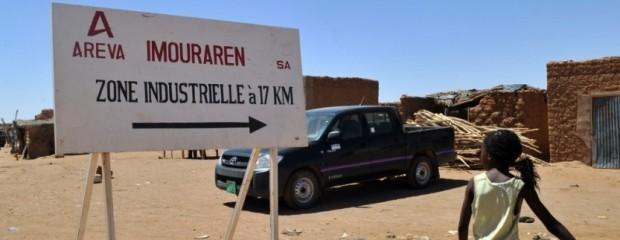Darfur and the New Scramble for Africa?
Over the next few months, Making Sense of Darfur will be running an occasional series of reviews of the book The Scramble for Africa: Darfur, Intervention and the USA by Steven Fake and Kevin Funk. It has a different take on the Darfur crisis and the American response, both governmental and activist, and it highlights a number of interesting issues rarely raised elsewhere.
The authors take a resolutely interest-focused approach to U.S. policy towards Sudan. They chart a history of self-interested American engagement in the region, deriving from Cold War strategic interest and subsequently oil resources. One of their more controversial claims is that oil reserves in the far north of Darfur have become a major strategic factor in the conflict, not just in the Sudan government’s military plans but also in the U.S. engagement. Their title implies a new international competition for Africa’s natural resources””predominantly oil.
The writers have little time for any analysis that identifies humanitarian motives or interests in U.S. policy, either at the zenith or in the actions of individuals or departments which are more junior in the hierarchy. They are scathing about analysts””especially American columnists””whose starting point seems to be that America is automatically a force for good in the world, and that evils occur when the U.S. fails to fulfill its historic mission. They speculate, what would Americans feel about a Russian campaign for Russian-led military intervention in Darfur, or a Chinese movement for divestment from American companies involved in Iraq?
Fake and Funk are as hard-nosed about the Sudan government as they are about the U.S.’s agenda. For them, questioning whether the Darfur war amounts to genocide is not an apologia for the Sudan government. To the contrary, it just shows the cynical realism with which the U.S. is ready to trim its rhetoric to suit its political purposes.
The book compares the American anti-war-in-Iraq demonstration of 29 April 2006 with the Save Darfur rally the following day. The Iraq focused demonstration drew a much larger crowd than the Darfur rally, but the media coverage of the latter was far more substantive, not to mention sympathetic. Fake and Funk identify a distinct preference among the elites for activism that is non-threatening to U.S. interests, reflected in how the media covers and characterizes Darfur.
The authors are deeply sceptical about military intervention, which they believe can only be an imperial exercise. They are scathing about the way in which the African Union mission in Darfur was underfunded and underequipped, while Washington DC proclaimed that it was doing all it could to stop the killing. They are highly critical of the Save Darfur Coalition for putting its campaigning emphasis on intervention and not on funding humanitarian relief programs.
Fake and Funk have a Chomsky-like eye for double standards, comparing the response to Darfur to Congo, Palestine and Iraq. This will be familiar to all who have followed the leftist critique of Darfur activism. They break new ground when they delve into the way in which countries including Israel, Britain and the U.S. have refused entry to refugees from Darfur””in the U.S. case, granting asylum to just three Darfurians, one of them the former translator for Nick Kristof, who benefited from the personal intervention of a raft of senior figures. The Israeli example is even more egregious, especially given the justification for creating the State of Israel in the first place as a safe refuge for people fearing genocide. The reader is compelled to ask, why the activist silence on these failings?





Dear Alex. The greatest complexity with the conflict in Darfur is that it has never been understood in a sound and objective fashion. For any part of the conflict it is being understood in a way that serves thier objectives and motives behind being a conflict party. If over the next few months the Making Sense of Darfur forum enable us to form a profound and proper understanding of the conflict in Darfur, then this will be the greatest contribution it makes to assist normalizing the situation in that region.
Fake and Funk fall easily into the same trap as Mamdani when asserting that oil options in the Darfur region are a primary concern for American policymakers: they make accusations without also providing credible substantiation. Indeed, Mamdani points to petrol politics not in Darfur itself, but in neighboring Chad, implying that the mere possibility of profitable drilling has kindled a fire under the Washington and Wall Street elite.
Both these analyses are disconcerting in their single-mindedness. The authors take no pains to examine the potential pitfalls of investment in Sudan’s oil wealth, real or imagined. The case of Talisman Energy, which was ultimately driven out of the Sudanese marketplace, suggests that the public relations costs of business in this particular zone of conflict, particularly in an era when so much of the picture is framed by activism – may outweigh the financial benefits.
I know you want the site to remain up-to-date, but is this book really worth discussing on here? Wouldn’t your readers be better served by a discussion of older works with more scholarly value? Like a discussion of the new(ish) edition of the Burr and Collins book on the region?
Dear Sean,
This blog is open to a wide range of opinions. I reviewed the Burr and Collins book on its (re-)release. Perhaps you would like to contribute a review of the book and its themes and prompt a discussion?
Alex